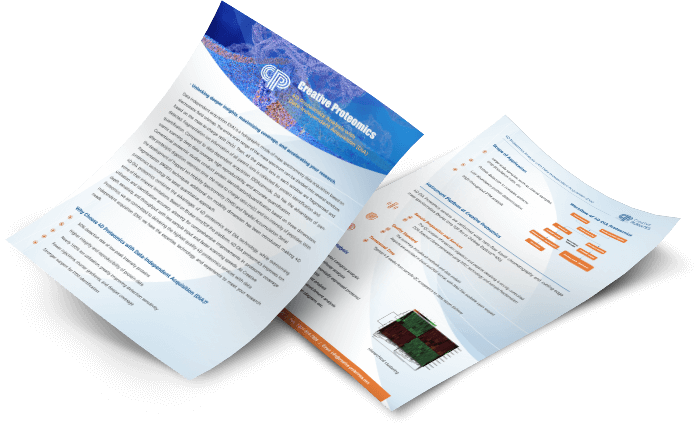Microorganisms Proteomics Solutions
Microorganisms, such as bacteria, actinomycetes, and fungi, are widely distributed in soil, water, and human bodies. Microorganisms play essential roles in human diseases, pharmaceuticals, the food industry, and industrial biotechnology.
Protein levels directly impact protein-protein interactions, cellular process, and molecular phenotype quantification of protein abundance, and it is essential to gain a thorough insight into the functions and biological activities occurring within microorganisms. Proteomics is now extensively engaged in the microbial field to obtain protein catalogs, yield qualitative and quantitative information about proteins, and compare protein contents of different ecosystems.
Our Targeted and Discovery Proteomics Services
Our Discovery Protein Strategy based on DIA (data independent acquisition) MS technology can quantify and identify thousands of proteins from each sample. Our Targeted Proteomics Services typically quantify up to 150 proteins with high precision and throughput in 6 orders of magnitude dynamic range. These technologies support the microbial research at the protein level, such as protein quality assessment, protein statistical analysis, functional annotation, network analysis, etc., and reveal the relationship between microbes and diseases, drugs, and the environment.
Benefit fields
- Environmental Microorganism Research
Proteomics contributes to environmental microbiology by enabling researchers to study the protein profiling of microbes, understand the stress response and adaptive strategies of extremophiles, and uncover the pathways behind the cellular processes. The complexity of environmental samples has been posing challenges, and proteomics in combination with multiple omic technologies would enable one to tackle them.
- Clinical & Pharmaceutical Microorganism Research
In the field of medical microbiology, proteomics aids in drug resistance analysis of microbial pathogens, understanding the epidemiology and taxonomy of human microbial pathogens, as well as the pathogenesis of microbes. The performance and reproducibility of already existing proteomic tools have to be enhanced for their routine use in clinical laboratories.
Proteomics supports the identification of food‐borne pathogens biomarkers, thus helping to investigate the impact of food safety on human health and expanding food microbiology research. Evaluating the risks associated with genetically modified foods has been challenging due to the seldom use of proteomics, the lack of interdisciplinary approach in food safety research, as well as the lack of professional proteomic experts[1].
Workflow

Advantages
High accuracy
High throughput, more than 9000 proteins can be identified at once
Quantitatively identify most detectable molecules, covering low-abundance proteins/peptides
High repetition rate
Complete and comprehensive sample information storage in the first analysis
Sample Requirements
Animal and clinical tissue specimens: 200 mg/sample
Cells, microorganisms: 1×107 cells/sample
Plant tender leaves and buds: 500 mg/sample
Plant seeds, fruits: 100 mg/sample
Report
- Experimental steps
- Relevant parameters
- Mass spectrometry spectra
- Raw data
- Proteomics analysis results
Reference:
- Shiny Matilda C, Madhusudan I, Gaurav Isola R, Shanthi C. Potential of proteomics to probe microbes. J Basic Microbiol. 2020;1-13.
* For Research Use Only. Not for use in the treatment or diagnosis of disease.



 4D Proteomics with Data-Independent Acquisition (DIA)
4D Proteomics with Data-Independent Acquisition (DIA)